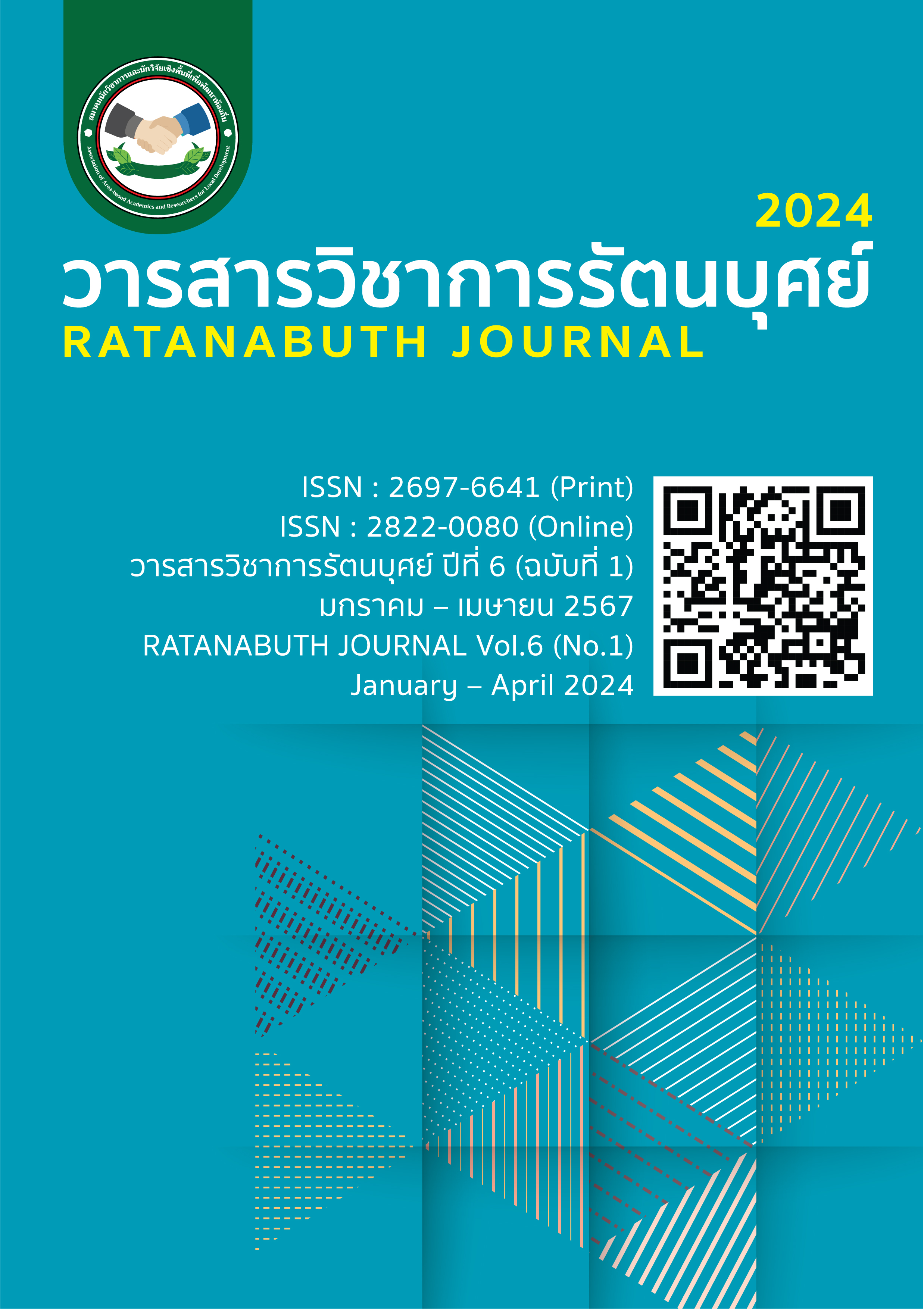The Potential of Future Educators: Enhancing Teaching Practice Experience The Potential of Future Educators: Enhancing Teaching Practice Experience
Main Article Content
Abstract
This article aims to reflect on the context of the global crisis, societal crises, and the humanitarian crisis in a complex and rapidly changing world. Influences and ubiquity from rapid global changes through the waves of globalization and the development of technology have led to widespread awareness and adaptability to unforeseen events in the modern world, often referred to as "VUCA" phenomena. The development of human resources is a crucial challenge in navigating the current and future world. Educational personnel must confront challenging tasks in developing teaching methods that instill adaptability to unforeseen changes. Therefore, it is imperative to develop various learning processes and redefine roles that no longer centralize learning into a single entity. Self-directed learning and internal wisdom are essential qualities for individuals in every era. The survival and future of Thai education in the face of global events require transformations to cope with the current and imminent crises. Three main strategies collectively contribute to this transformation. The first is holistic learning, the second is learning towards change, and the third is collaborative networked learning. Teaching is a profession that requires both science and art. The scientific aspect of the profession's knowledge can be acquired from various curricula and media. The art of the teaching profession involves translating this knowledge into practice. Teachers need practical skills to make their teaching effective. The production of teacher graduates involves incorporating the professional science and teaching art into the curriculum, as outlined by the standards of the Ministry of Education and the Teacher's Council. Institutions producing teacher graduates prioritize practical training from the early years to the final year of study. This includes a professional experience of no less than one year and practical experience before teaching practice. The process of professional experience for teacher students is a crucial component in producing high-quality graduates that positively impact the quality of education in the country.
Article Details

This work is licensed under a Creative Commons Attribution-NonCommercial-NoDerivatives 4.0 International License.
References
กรนัท สุรพัฒน์. (2553). เส้นทางสู่ชีวิตที่หลอมรวม (The path toward a life of integrity).กรุงเทพฯ: บริษัทอมรินทร์พริ้นติ้ง แอนด์พับลิชชิ่ง จำกัด (มหาชน).
ชลลดา ทองทวี และคณะ. (2551). บทความการประชุมวิชาการประจำปี 2551 เรื่องจิตตปัญญาศึกษาการศึกษาเพื่อพัฒนาความเป็นมนุษย์. กรุงเทพฯ: โครงการศูนย์จิตตปัญญาศึกษา มหาวิทยาลัยมหิดล.
ชัยวัฒน์ ประสงค์สร้าง. (2553). รูปแบบความสัมพันธ์โครงสร้างเชิงสาเหตุของปัจจัยที่ส่งผลต่อความสำเร็จด้านการประกันคุณภาพการศึกษาภายในของเครือข่ายความร่วมมือทางวิชาการและประกันคุณภาพการศึกษาของมหาวิทยาลัยเทคโนโลยีราชมงคล.วิทยานิพนธ์ปริญญาดุษฎีบัณฑิต จุฬาลงกรณ์มหาวิทยาลัย.
ชัยวัฒน์ ถิระพันธ์. (2542). ปั้นแต่งอนาคตสังคมไทย. กรุงเทพฯ: สถาบันการเรียนรู้และพัฒนาประชาสังคม.
บุญรอด โชติวชิรา. (2564). การวิจัยเชิงปฏิบัติการเพื่อส่งเสริมนักศึกษาฝึกประสบการณ์วิชาชีพครูวิชาภาษาไทยในการพัฒนาอภิปัญญาของนักเรียนที่เรียนวิชาภาษาไทย.วารสารปัญญาภิวัฒน์,13(2), 251-263.
ประเวศ วะสี. (2550). วิถีมนุษย์ในศตวรรษที่ 21 ศูนย์ หนึ่ง เก้า. พิมพ์ครั้งที่ 4, กรุงเทพฯ: สำนักพิมพ์สวนเงินมีมา. โครงการหนังสือวิชาการจิตตปัญญาศึกษา ลำดับที่ 1.
มนัสวี ศรีนนท์. (2559). ปรัชญาและแนวคิดทางการศึกษากับพัฒนาการการศึกษาไทย.วารสารศึกษาศาสตร์ มมร, 4(1), 84-93.
วิติยา ปิดตังนาโพธิ์. (2555). กระบวนการเรียนรู้เพื่อฝ่าวิกฤติความท้าทายในอนาคต.
สุรพล ธรรมร่มดี, ทัศนีย์ จันอินทร์, และคงกฤช ไตรยวงค์. (2553). อาศรมศิลป์วิจัย: การวิจัยและพัฒนาชุมชนแห่งการเรียนรู้แนวจิตตปัญญา. โครงการเอกสารวิชาการการเรียนรู้สู่การเปลี่ยนแปลงลำดับที่ 8. นครปฐม: เอมี่ เอ็นเตอร์ไพรส์ จำกัด.
สำนักงานเลขาธิการสภาการศึกษา. (2560). รายงานการวิจัยแนวทางการพัฒนาการศึกษาไทยกับการเตรียมความพร้อมศตวรรษที่ 21. กรุงเทพฯ: สำนักงานเลขาธิการสภาการ.
Bawany. (2018). Leading in a disruptive VUCA world. New York: Business Expert Press.
Kajorn, A. (2017). The Development of Instructional Packages to Support Learning Management of Co–operative Learning on the Topic “Lilittalengpai”, of the Thai Language Department for Matayom Suksa 5 Students. Academic. Journal of Mahamakut Budddhist University RoiEt Campus, 6(1), 1-11.


